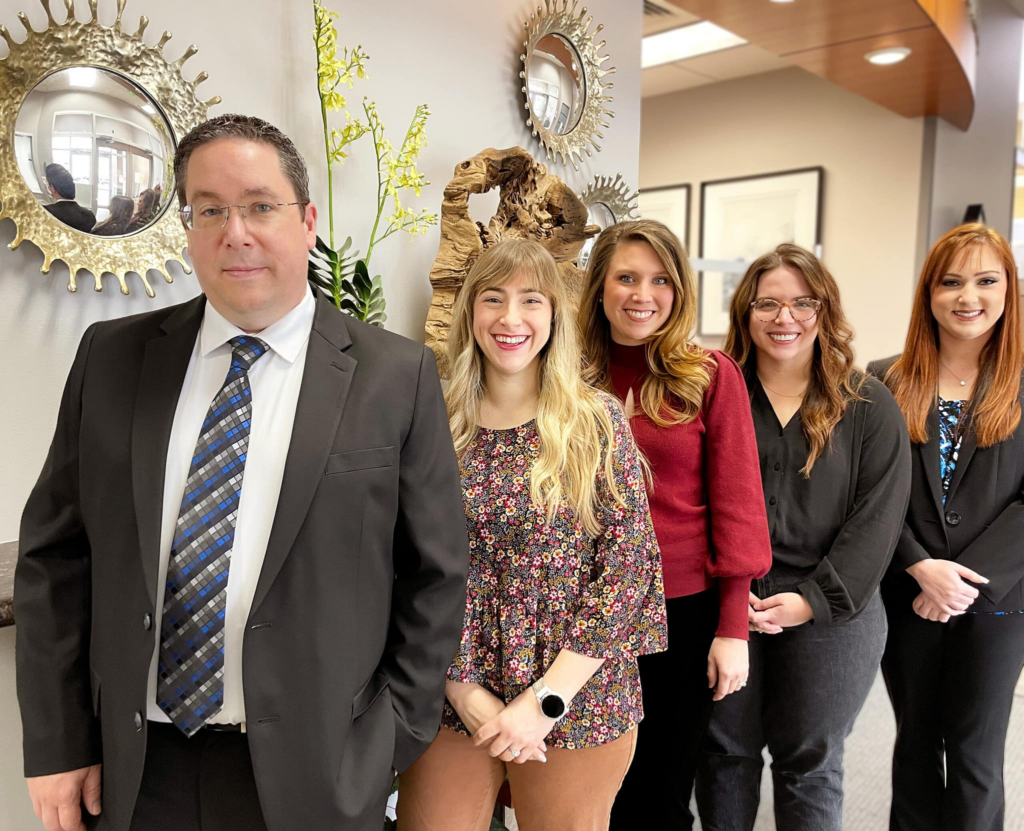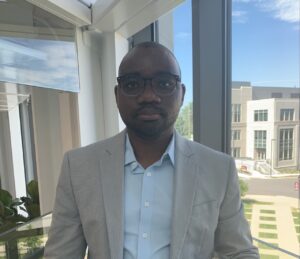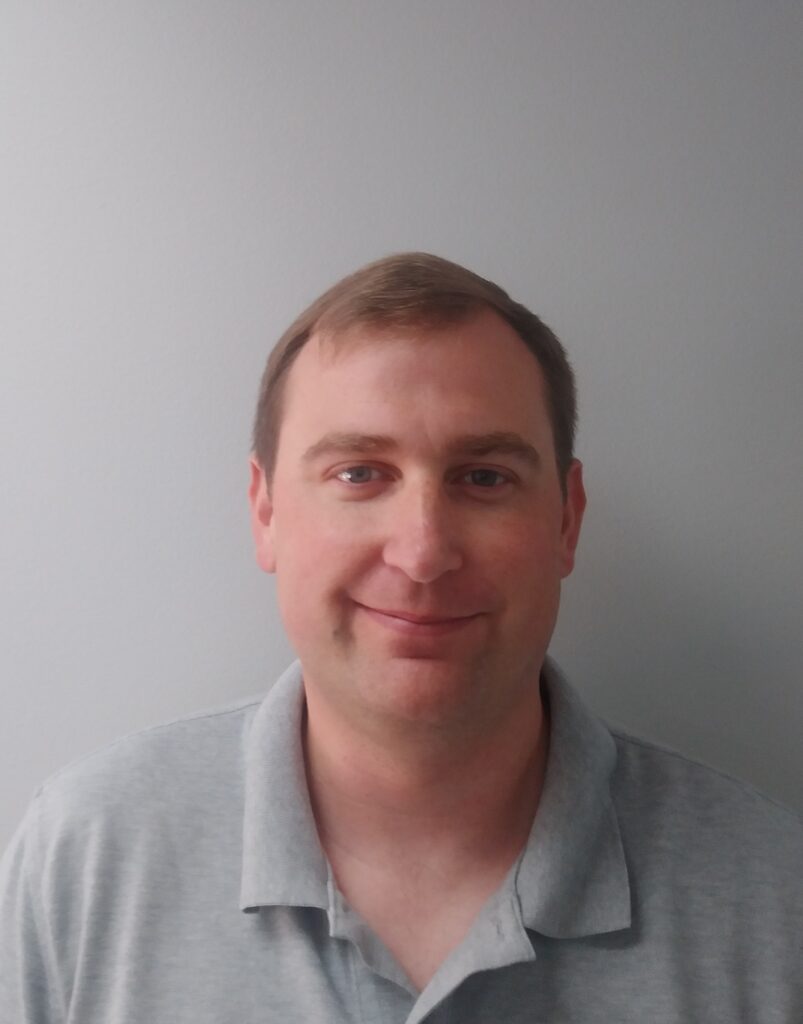Our students have found success with a variety of careers. Here are a few examples of recent graduates.
Student Success in Industry

Several of our students have had success with the Center for Toxicology and Environmental Health, headquartered in North Little Rock, AR. Read more at the link above.
Q&A With Dr. Etienne Nzabarushimana

What was your educational background before you started your MPH Program at UAMS?
Before I started the MPH program, I was studying Chemistry at Hendrix College. I was also involved in undergraduate research projects in Chemistry and Biochemistry.
How did you learn about our program?
I first learned about the MPH program from a classmate and a friend of mine who later connected me to Dr. Victoria Evans through my then academic advisor Dr. Tom Goodwin. It was at the end of my sophomore year. After learning more about the MPH program and the UAMS COPH 4+1 MPH program at Hendrix from Dr. Evans, I immediately applied and was admitted to the MPH program and joined during the Spring semester of my junior year.
What were the most important aspects you learned within the program?
The MPH program provided me an opportunity to learn more about the concepts of public health in theory and practice. During my time in the MPH program, I had a very good and supportive environment that allowed me to understand the interplay and the role of basic science research in public health. My preceptorship and final capstone projects were focused on biomedical and translational research. I was taking classes and conducting research at the same time in the lab of Dr. Igor Koturbush. It was very interdisciplinary! I was trained and mentored in public health with a concentration in Biostatistics and in biomedical and translational research. This allowed me to develop and practice the art of scientific reasoning and statistical learning. Those were probably the most important aspects I got from the program.
Was there any instructor within the Program that you would like to acknowledge for any reason? If yes, please, name the instructor(s) and reason(s).
All the instructors I had during my time in the MPH program were great teachers. The classroom experience was welcoming, collaborative and very open minded. Instructors were attentive to our needs and growth not only in our knowledge but also in our career goals. There are two instructors that I would like to acknowledge. First, I would like to acknowledge Dr. Keith Williams. Dr. Williams was my academic program advisor and went above and beyond to ensure I get the best out of the program. He inspired me to love Biostatics and statistical learning. He would tell his students- “Go make us look good!”. I think those words reflect how much he cares for his students and how their success is his as well.
I also would like to acknowledge Dr. Igor Koturbash. Dr. Koturbash was my research advisor and mentor. I could say many things about Dr. Koturbash like how he is a great teacher and scientist, a lot about his passion and enthusiasm for the success of his students, etc. But I want to particularly mention one aspect that I think is usually overlooked: mentorship. In my view, the amount of mentorship one gets might be one key determining factor of how far they could go. Dr. Koturbash is a great mentor. Under his tutelage, I grew into a researcher which ultimately led to my decision to pursue a PhD training with a specialty in Bioinformatics. Even after my time in MPH program, he has been always there any time I needed him, and he would check in with me to see how things are going.
I would also acknowledge Drs. Isabelle R. Miousse and Antino R. Allen. They have been wonderful to work with and great mentors as well.
How did this Program help you in selecting the next steps in your career?
During my MPH training, I was involved in active biomedical and translational research. I came to realize that both the biological systems I studied, and the novel technologies intended to analyze them were remarkably complex, while the crosstalk between the computational developers and the wet-lab researchers seemed limited. I immediately felt that to effectively address the challenges in such biomedical research endeavors, it would require someone with an active knowledge of both biological as well as computational knowledge and training. Someone who could work effectively with scientists whose expertise is more restricted to either wet-lab or dry-lab environments. My training in Biostatistics offered me the statistical learning that is critical for computational work while my bench work in Dr. Koturbash group gave me the wet-lab experience. Ultimately, this combination aided me decide to pursue my PhD training in bioinformatics at Indiana University Bloomington.
As I mentioned earlier, it is during my time in the MPH program, it become clear that I would like to pursue a career focusing on research and education. I am very passionate about solving problems related to health using technology. My training in this program become a steppingstone to my career development.
What will be your next steps in your career?
I have followed the typical route of developing a successful career in academia. Currently, I am a post-doctoral research fellow in Dr. Long Nguyen’s group with co-mentorship from Dr. Andrew Chan and Dr. Curtis Huttenhower at Massachusetts General Hospital/Harvard Medical School in the Gastroenterology division. After this training, I look forward to growing into an independent researcher whose group would be dedicated and focused to studying various ways microbiome impacts our health to enhance our ability to use microbiome to better our own health.
What would you say to those who are considering applying for this Program?
For those who are considering applying to this program, I would just say this: there are many factors that you are probably evaluating to make your decision and indeed you should. It is important to join a program where you feel you are in the right place for your personal and career goals. This means joining an environment that is supportive, caring and operating through a holistic approach to your personal and professional growth. This program would give you this.
John Schofield

Choosing the Graduate Certificate in Environmental and Occupational Health at UAMS’ Fay W. Boozman College of Public Health was a great choice for me. The courses that were offered gave me a firm understanding of the environmental health side of public health by offering courses such as Environmental and Occupational Health, Environmental Biological Hazards, and Principals of Toxicology in Public Health. Environmental and Occupational Health introduced important topics like the history of environmental and occupational health, and pertinent information about chemical, physical, and biological hazards; Environmental Biological Hazards focused on crucial concepts such as environmentally transmitted pathogens, plant and animal toxins, and biohazard safety in the workplace; while principals of toxicology in public health covered things such as the absorption, distribution, and elimination of toxicants in the human body, along with the biotransformation of toxicants.
Not only did I gain great knowledge about a public health field that I am interested in, but I believe the Graduate Certificate in Environmental and Occupation Health and the information that I gained from its courses helped me acquire my job working as an Environmental Health Specialist, as I was able to answer key questions about environmental health and foodborne illness during my final job interview.
